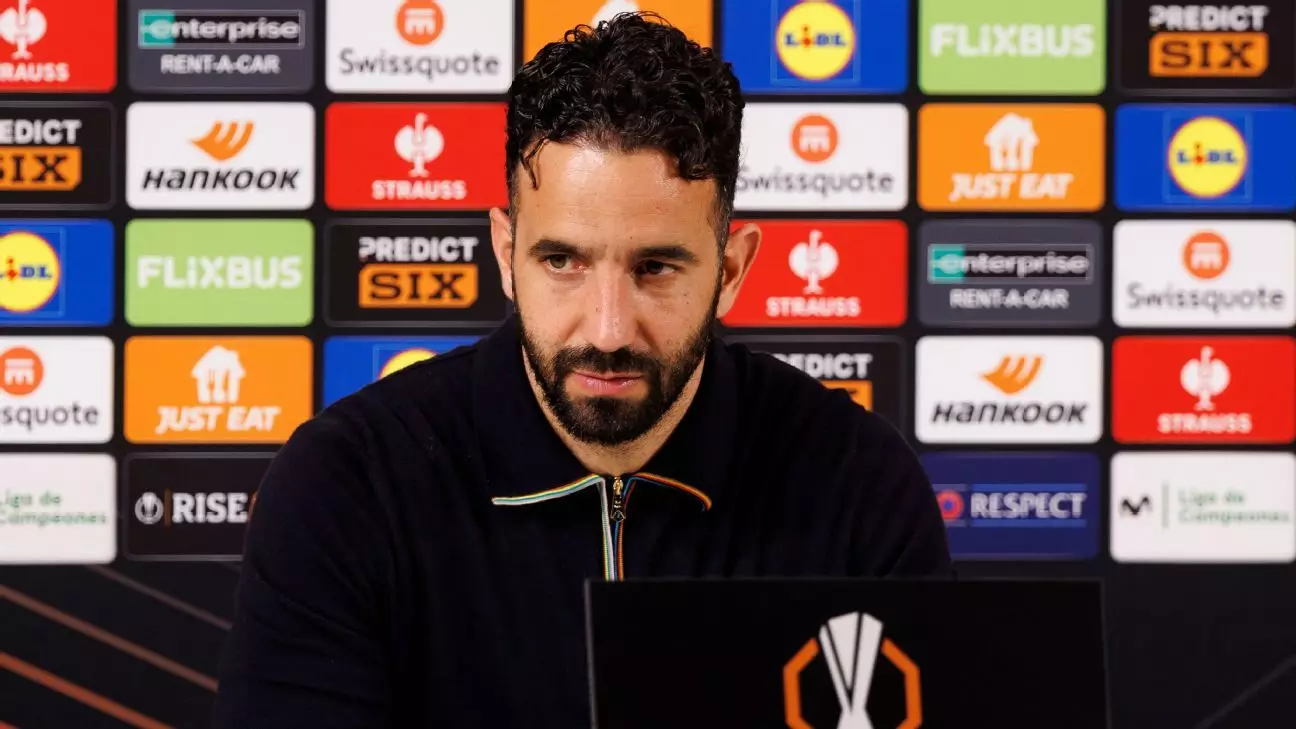In an era where austerity seems to define corporate policies, Ruben Amorim has become a beacon of compassion and leadership by taking an extraordinary step to support his Manchester United staff. With the Europa League final approaching, Amorim took it upon himself to ensure that 30 members of his backroom team would not only attend the match in Bilbao but also be able to share the experience with their families. This act stands in stark contrast to the club’s current approach, which prioritizes fiscal responsibility over employee welfare, raising important questions about the balance between cost-cutting and staff morale.
The Strain of Cost-Cutting Strategies
While the decision to spend on staff clearly embodies a commitment to team cohesion, it is set against a backdrop of significant cutbacks at Manchester United. The club is reportedly preparing to axe around 200 jobs in a bid to streamline operations, which showcases a disheartening trend where financial concerns overshadow community values within the organization. The decision to limit the allocation of tickets for the final to two per player and to charge staff for their attendance further illustrates how deeply embedded these measures have become, chilling the spirits of many who contribute tirelessly behind the scenes.
Contrasting Corporate Cultures
In a telling comparison, Paris Saint-Germain’s decision to treat 600 staff members to the Champions League final demonstrates a vastly different corporate culture that values employee loyalty and satisfaction. While it’s easy to dismiss such gestures as mere PR stunts, they hold significant weight in building a cohesive organizational atmosphere where staff feel valued for their contributions. This stark juxtaposition highlights a critical question: What does it mean to be a leader in today’s competitive sports landscape? Amorim’s choice to prioritize his team’s emotional well-being over adherence to stringent policies suggests that fostering a positive work environment can yield benefits that far exceed any immediate financial considerations.
The Ripple Effect of Amorim’s Decision
By personally funding the attendance of his staff at such a significant event, Amorim not only underscores his commitment as a leader but also strengthens the bond within his team. In the competitive world of sports, where mental fortitude plays a crucial role in achieving success, nurturing a supportive atmosphere can lead to enhanced performance. It’s a reminder that the true essence of leadership lies not just in strategic decisions but also in uplifting those who stand with you on a daily basis. In opting to make sacrifices for his staff, Amorim cultivates an environment built on solidarity and camaraderie, essential attributes that can drive a team toward not just sporting victories, but cultural success.
Redefining Priorities in Professional Sports
The contrasting approaches to staff engagement exhibited by Manchester United and PSG raises a critical dialogue about the priorities of elite sports organizations. Are they merely profit-driven enterprises, or can they evolve into bastions of employee empowerment? Amorim’s actions challenge the prevailing notions of leadership in sports management and suggest that true success is not merely measured in trophies, but also in the satisfaction and well-being of those who support the athletes on the field. By putting his money where his mouth is, Amorim has transformed a moment of crisis into an opportunity for growth, reaffirming that in leadership, the most impactful decisions often come from the heart.

